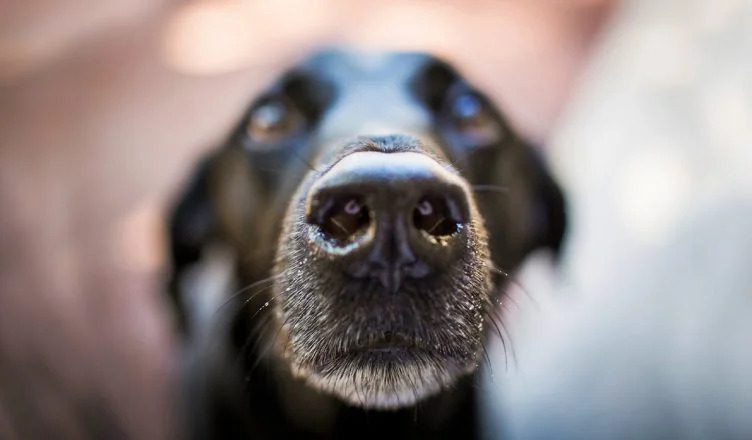It’s no secret that dogs have an incredible sense of smell. They are trained to detect hidden drugs, bombs and sense some medical conditions. But, is it true that they can smell cancer as well?
Can Dogs Smell Cancer?
Yes, dogs can smell cancer. There have been numerous studies that have proven that dogs can actually pick up on diseases by their chemical signature. In this article, we’ll explore scientific details and information behind cancer-sniffing dogs.
How Are Dogs Able To Detect Cancer?
Dogs have a powerful smelling system that allows them to detect subtle odors given off by cancer cells. However, most dogs have to be trained to recognize these scents.
Organizations like the UK-based group Medical Detection Dogs (MDD) train dogs to detect the odor of human disease in samples such as urine, breath, and skin swabs.
This is a skill that can be valuable as it can save lives. However, there are some limitations to the dog’s ability to detect diseases. Dogs can only smell cancer cells and chemicals in parts per trillion, which is still very informative for such a small amount.
You might also be interested in How Strong Is A Dog’s Sense Of Smell?
Are There Any Insights Of Cancer Detecting Dogs In Action?
In 2016 the Huffington Post reported that dogs may detect lung cancer, melanoma, and breast cancer in 93% of cases.
According to CNN, one MMD dog named Lucy has been able to detect cancer correctly more than 95% of the time.
There are also some exceptions where some dogs can detect cancer without any training. One such example is Sierra, the Siberian Husky.
Sierra was able to identify and notify her owner of cancer in her ovary, liver, and pelvic area. This way, she saved her owner’s life. You can read the full article here.
Why Hasn’t This Detection Method Been Put To Practical Use?
Indeed, letting a dog sniff you for the detection of tumors is a good idea, both financially and time-wise. Dogs can easily detect signs of cancer much earlier than any doctor or medical equipment.
But why hasn’t this detection method been put to practical use?
- Firstly, it is almost impossible for a dog to sniff thousands of samples in which only a handful may be cancerous with little positive reinforcement.
- Secondly, it takes a lot of time and energy to train these pups. They would need to be trained, housed, and fed, and would not be able to work for more than a few hours at a time.
- Also, most dogs are only able to detect one type of cancer, and it varies from dog to dog. This makes it difficult to use such tests in order to predict the possibility of certain risks.
- More importantly, it is still unclear if the dogs pick up specific molecules originating from a tumor, or molecules associated with the general illness. There’s also the chance that they may be confused by other scent molecules, such as garlic, tobacco, alcohol, or other pungent foods.
Is There Any Alternative Method Just As Reliable And Fast?
Thanks to all the research on canine cancer detection, “electronic noses” have been developed. These noses can pick up volatile molecules produced by cancer cells with greater accuracy than a real-life dog’s nose. This kind of technology is being tested in a range of cancers, including breast and lung.
However, more research is required to ensure that the “noses” are accurate and reliable at detecting cancer. But as technology advances further, they will likely have wide applications for detecting many types of cancer.
There is no cure for cancer yet, but early detection increases the chances for survival, and this technology will surely help in that aspect.
What Other Diseases Can Dogs Sniff Out?
Other than cancer, dogs can sniff out diabetes, tuberculosis, and malaria from smell alone. They can also detect Narcolepsy.
Other diseases that dogs may be able to sniff out are Migraine and Low blood sugar, and recently they have been trained to sniff out Covid-19 as well. You can check out other diseases that dogs can sniff out here.
Conclusion
Dogs can detect cancer because of their strong sense of smell. But their life-saving skill hasn’t been put to practice because it is time-consuming as well as it takes a lot of effort to sniff thousands of samples. Moreover, it is still unclear whether dogs pick up specific molecules originating from a tumor or from general illness.
Thank you for reading the article.
To explore more, check out other articles related to dogs’ sense of smell that you might be interested in.
Did you already know about dogs’ ability to detect cancer? What do you think about this life-saving skill of dogs? We would love to hear from you. Please share with our community by leaving a comment below!
